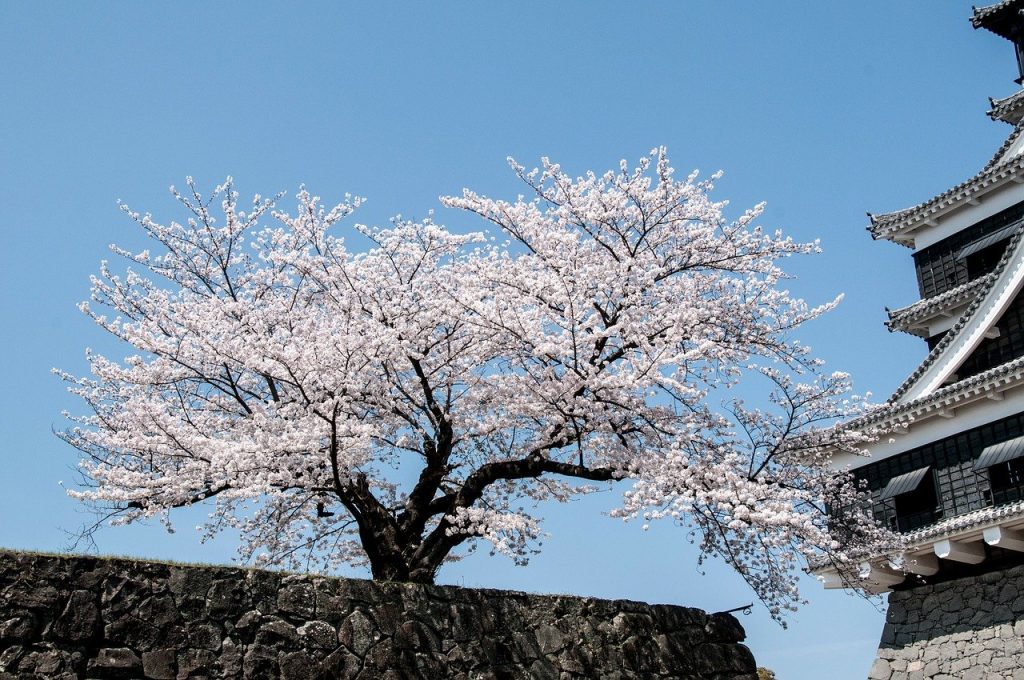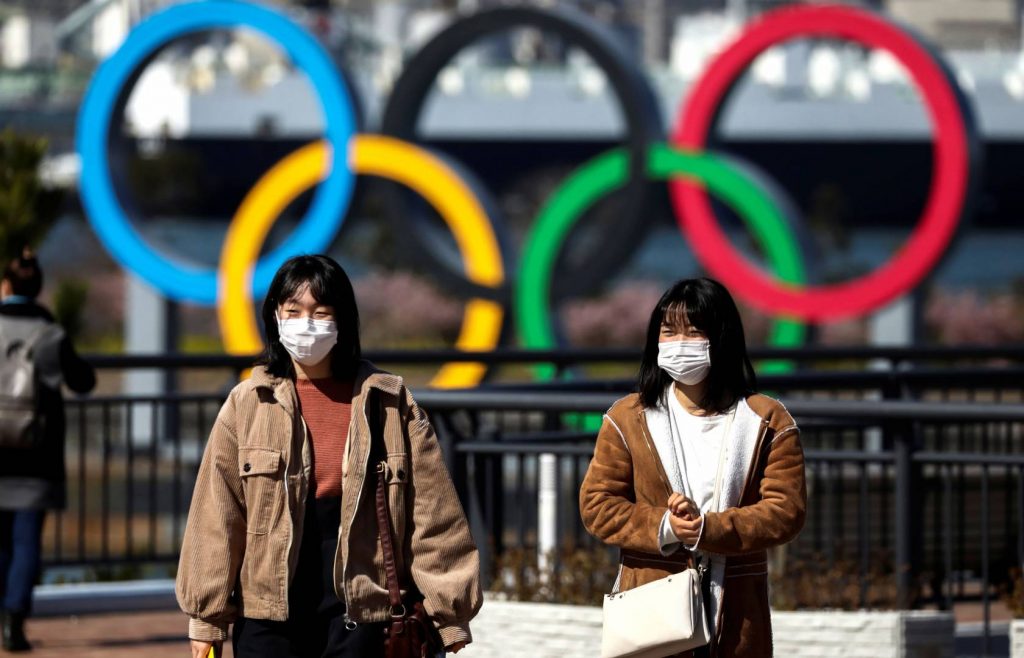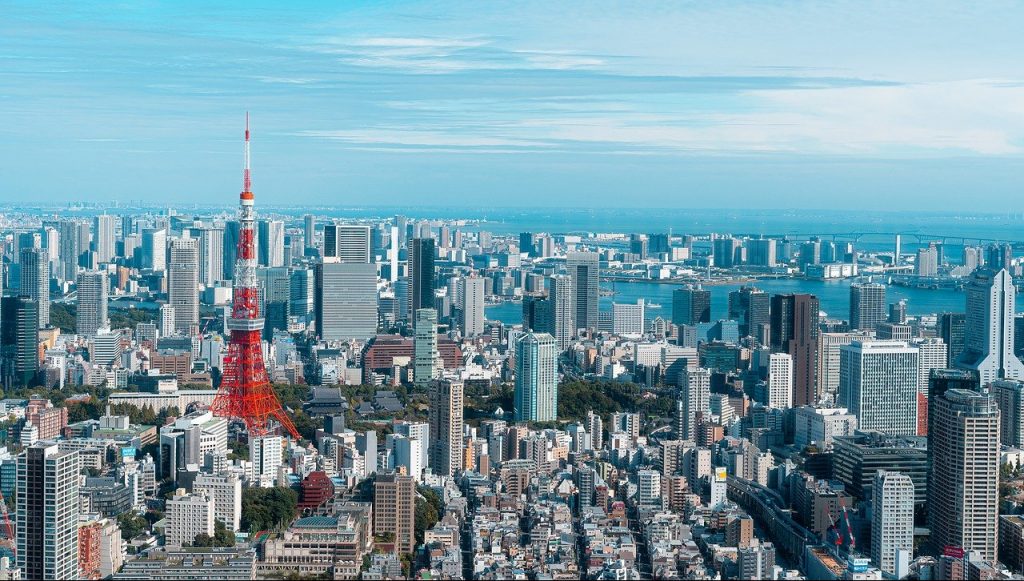Cherry Blossoms, Covid & The Search For Hope
April 15, 2021
Olympic Games adviser Michael Pirrie analyses the unique challenges facing the Tokyo Olympics as the final countdown begins for the postponed Games after the 100 days to go mark was passed this Wednesday.
Japan’s world famous cherry blossom season heralds greater significance this year than in previous times for the Olympic host nation and wider world.
The Sakura blossoms offer a symbol of hope in a world still reeling from the Covid pandemic after more than a year and counting.
Hope of a fight back against Covid as lockdowns localise and shorten; travel bans and quarantine restrictions begin to ease in some parts of the world; and limits on vaccine production and distribution are addressed.
“With no known delivery guide for the mega international event in a global health emergency, there was initially no Plan B for Tokyo to get to the 100-day staging post.”
Hope too for Tokyo organisers that sport’s mission impossible might be more viable and possible as pre-Games build up programs push ahead in a world still fearful but more familiar and living with the pandemic.
This includes more Olympic qualifying events; NBC, BBC and other broadcaster trailers and lead-ins; venue overlay installations and technology testing; and even the unauthorised publication of Opening Ceremony information, now a standard pre-Games host city event.
The resumption of the dramatically slimmed down Torch Relay – watched and followed more online than on the streets – making its way to Tokyo to ignite the Games cauldron is a symbol of that hope.

So too is Japanese golfer Hideki Matsuyama’s, historic US Masters win, cheered and heard across the Olympic host nation and around the world.
This was an outpouring of national joy by Japan, born of the nation’s obsession with golf, and a demonstration of sport’s unique capacity to unite a nation and inspire global audiences.
Japan celebrated a new national hero who will next represent his country at the Tokyo Games later this year on the Olympic golf greens at Kasumigaseki Country Club, outside the host city.
Matsuyama’s surprise win, with spectators in attendance, was also was a victory over local Covid conditions as well as Augusta’s formidable and fabled fairways.
This lifted the mood of Japan and reminded the host nation again of why it wanted to host the world’s biggest sporting event.
Matasayma’s victory comes in the week Japan has been marking 100 days to the Games.
The latest Tokyo countdown milestone, like Matasayma’s golfing triumph, comes against the odds.
While Japan bypassed the landmark Olympic calendar diary date last year following postponement of the Games, many feared Tokyo might be forced to cancel for a second and final time.
The countdown landmark is also an expression of hope and sign of survival too for the Tokyo Games.
The Olympic preparations for Tokyo have been questioned and challenged like no other Games by a pandemic that has severely affected sport and nations worldwide.
With no known delivery guide for the mega international event in a global health emergency, there was initially no Plan B for Tokyo to get to the 100-day staging post.
Arriving at 100 days out was like finding a passage from base camp to the peaks of Everest without a compass or map.
As athletes and players from around the world prepare to take the field in Tokyo in July however the virus refuses to yield.
“Japan’s new Olympic committee leader has brought greater empathy to the challenge of organising the Games.”
The 100 day benchmark coincides with a new surge in Coronavirus infections, making the final ascent to the pinnacle of the Everest of world sport even more hazardous.
The new surge raises further fears about the fragile future and support for the pandemic-stricken Games, with a new poll indicating many Japanese would prefer the Games to be deferred or cancelled.
The IOC however remains confident Japan will get behind its home games.
The latest Covid outbreak comes amid a new approach and attitude to managing the Games, symbolised by the energetic style on new Tokyo Olympic Games boss Seiko Hashimoto.
NEW GAMES APPROACH
Japan’s new Olympic committee leader has brought greater empathy to the challenge of organising the Games and calming fears the air of excitement that traditionally surrounds an Olympic host city will also be filled with the virus.
Using her new position on the national and international stage, the former Olympic athlete and Minister has sought to reassure an anxious host country and world sceptical about the safety of the rapidly approaching Games.
The concerns of the Japanese people have been acknowledged and addressed more directly and openly.
A wider perspective and conversation has also commenced with the public and media about the Covid crisis and the Games.
This has even included discussion and debate over a moral imperative to stage the Games as a beacon of hope to the world and the key to safety as organisers attempt to finalise plans compatible with both perspectives.
This contrasts with the crash through or crash communications style of the previous local Games leadership.
This approach failed to adequately acknowledge the scale of the pandemic challenge facing Japan and the Games nor the risks involved with a virus that doesn’t need a ticket or day pass to enter Olympic venues.
“The revised public communications strategy – which includes releasing high-level Games policy information to targeted media – has sought to increase the public’s understanding of safety for the Games.”
While adamant the Games would go ahead – even as global Covid deaths, disease and hospitalisations soared – little information was available until recently about how this would be done.
Speculation about the future of the Games increased as the information vacuum widened and Covid infections spread.
Assumptions underpinning the new master plan for the postponed Games were constantly reassessed, reviewed and reworked.
The revised public communications strategy – which includes releasing high-level Games policy information to targeted media – has sought to increase the public’s understanding of safety for the Games.
The recent publication of the first set of Covid counter measures helped to fill the information void that alienated public support.
The mandatory masking, testing, and travel restrictions, along with other rules outlined in Games playbooks, has helped to inform an apprehensive Olympic host city and nation about measures to address a virus that refuses to play by the book and makes its own rules.
PANDEMIC PRISM FOR GAMES
This Hanami blossom-watching season has also brought the unique challenges facing the Games in Tokyo into much sharper focus.
The full impact of the pandemic on the Games is becoming clearer. The scale and complexity in the final days and stages of Games preparations is monumental.
Years of painstaking operational planning must be transferred from computer screens to competition sites and venues in the Olympic park and other venue clusters and settings.

The many imponderables however that still surround the pandemic mean that the ensuing days will be critical in determining the fate of the Olympics in July.
While the last 100 days of preparations has traditionally been regarded as a defining period for each Games, the future of the Games will be decided in a much shorter time frame.
The Covid levels in Tokyo may soon become too high for a public sporting event as big as the Olympic Games.
BACK TO BASICS GAMES
While North Korea has withdrawn from the Games more for political motivations than health concerns, other national Olympic teams will scale back their delegations and teams pending the covid situation.
Vaccines will become a priority issue for athletes as well as many thousands of volunteers, the front line workers for the Games, if the Covid surge continues.
While China has offered to vaccinate international athletes for Tokyo as well as the Beijing Winter Olympics next year, many Olympic nations may harbour deep concerns about the transparency of medical trials and safety of China’s domestic vaccines.
Tokyo will be a back to basics Games, with full focus on the welfare of athletes.
This will be a fly in and fly out Games following competition in order to limit international numbers and movements in Tokyo.
These pose the single biggest threat of cross infection for Japanese communities, visiting athletes and their home nations on return.
CONCLUSION
The Games will be decided through the prism of the pandemic. Facilities and communities must be rendered Covid-safe as soon as possible in the countdown to the Games.
This is vital to restoring domestic and international confidence in the safety of the Games, and essential to keeping preparations for the vitally important competition and broadcast schedules on time for the Games.
Amidst the ever present Covid threat, Games organisers hope that prospects for the Games will endure well beyond the fleeting cherry blossom season and stretch all the way to the opening ceremony.



